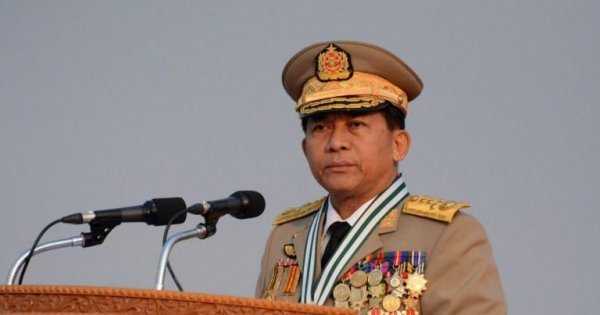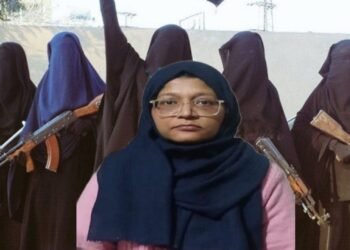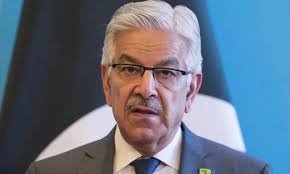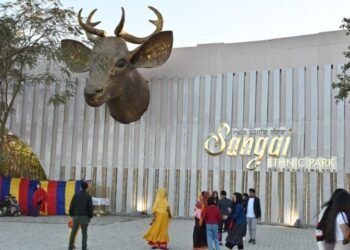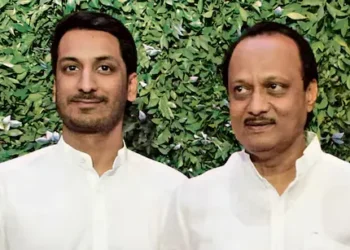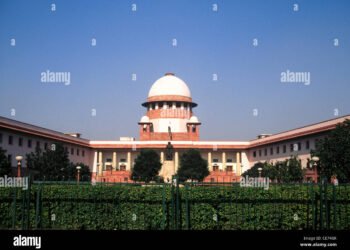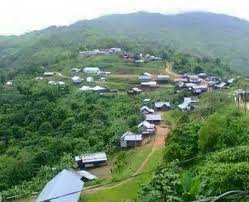With over 3 million displaced and 20% of townships under martial law, citizens describe the election as meaningless theatre — a hollow performance amid starvation, airstrikes, and fear.
BY PC Bureau
October 28, 2025 –: As billboards sprout across the junta-controlled capital of Naypyidaw and state media gears up for pro-military ads, campaigning officially begins today for what critics universally decry as Myanmar’s rigged election.
With just two months until the first phase of voting on December 28, the military regime’s bid to cloak its iron-fisted rule in democratic veneer is drawing widespread scorn, boycotts, and a resounding “no” from regional powerhouse ASEAN on election monitors.
In a nation ravaged by civil war since the 2021 coup, ordinary citizens – battered by displacement, starvation, and violence – view the polls as irrelevant theater, a distant sideshow to their daily survival struggles.
The elections, staggered across phases to accommodate “security concerns,” will feature 57 approved parties vying for seats in the Amyotha Hluttaw (upper house) and Pyithu Hluttaw (lower house) of the dissolved parliament.
Notably absent is the National League for Democracy (NLD), the party of jailed Nobel laureate Aung San Suu Kyi, which crushed the 2020 vote with 82% of seats. The junta dissolved the NLD in 2023 after imprisoning Suu Kyi on trumped-up charges of voter fraud and corruption, effectively banning the pro-democracy icon and her supporters from the ballot.
A Pro-Military Show: USDP Poised to Dominate
Leading the pack is the Union Solidarity and Development Party (USDP), the army’s political arm, chaired by retired general Khin Yi. The USDP – rebranded successor to the military’s 2010-era proxy that flopped in 2020 – plans a splashy launch with billboards in Naypyidaw and evening slots on state TV.
Yet, even here, cracks show. Junta chief Min Aung Hlaing has already flouted campaign rules by using official events to tout USDP candidates, drawing accusations of unfair advantage.
Campaigning is expected to be muted and militarized. High security will blanket events amid ongoing clashes, with no street parades or rallies in sight for most parties.
The regime’s new laws impose up to 10 years in prison on election protesters, while cybercrime statutes muzzle online dissent that “disrupts unity.”
Polls won’t even reach one in seven parliamentary constituencies — hotspots of active warfare — and martial law lingers in 20% of townships, underscoring the farce.
The People’s Pioneer Party (PPP), a minor player, suffered a blow when the regime barred its leader, Thet Thet Khine, from running — a stark reminder of the junta’s gatekeeping.
READ: Prashant Kishor Registered as Voter in Both Bengal and Bihar
READ: After Historic Rally, Gold Prices Cool to ₹1.21 Lakh as Silver Also Slides
Civil War Backdrop: No Room for Polls in a Nation in Flames
Myanmar’s descent into chaos began with the February 2021 coup, when the Tatmadaw (military) ousted Suu Kyi’s government, sparking nationwide protests that morphed into armed resistance.
Today, the junta — led by Senior General Min Aung Hlaing — controls less than half the country, having ceded vast swathes to pro-democracy People’s Defense Forces (PDFs) and ethnic armed organizations (EAOs) such as the Arakan Army in Rakhine State.
Over 3 million people are displaced, famine stalks border regions, and airstrikes pound rebel-held areas weekly.
Rebels, including the National Unity Government (NUG) — Myanmar’s shadow democratic administration — have vowed a total boycott in territories they control, which span nearly half the nation.
Human Rights Watch and a UN special rapporteur have slammed the vote as “critically flawed,” citing voter list manipulations, intimidation, and exclusion of opposition voices.
UN Secretary-General António Guterres urged the junta on Monday to ditch the polls and prioritize aid, stating:
“Elections in Myanmar would not be free nor fair.”
Campaigning for the junta’s election began today and runs until Dec. 26. The first phase of voting will be held Dec. 28 in 102 townships. 4,937 candidates from 57 parties are participating. Photo: USDP Chairman U Khin Yi in Naypyitaw Oct. 19. / USDP #WhatsHappeningInMyanmar pic.twitter.com/XJjuv5F3Rl
— The Irrawaddy (Eng) (@IrrawaddyNews) October 28, 2025
ASEAN’s Rebuke: No Monitors, No Legitimacy
In a diplomatic gut punch, the Association of Southeast Asian Nations (ASEAN) confirmed it will snub the election and send no observers, bowing to pleas from rights groups wary of rubber-stamping the sham.
At the ASEAN-UN Summit in Kuala Lumpur, leaders reiterated “deep concern” over escalating violence, demanding a ceasefire and inclusive talks per the bloc’s stalled Five-Point Consensus — but admitted zero progress.
Exiled activists amplified the call on X:
“ASEAN must not legitimize murderers. Reject the Myanmar junta’s sham election and stand with the people,” tweeted CDM teacher Sayar Aung.
Human rights advocate Khin Ohmar echoed that sentiment, urging global rejection of any recognition or support for the junta-led vote.
The EU and Australia have also condemned the shrinking political space, while neighbors China and India — both with deep economic stakes — tread cautiously, prioritizing stability over principle.
A Path to ‘Reconciliation’? Or Entrenched Tyranny?
The junta pitches the vote as a “reconciliation roadmap,” but analysts see it as a desperate ploy to extend Min Aung Hlaing’s grip under the junta’s 2008 constitution, which reserves 25% of seats for unelected soldiers.
A junta-run census in October 2024 — marred by access denials in war zones — will underpin voter rolls that critics say are ripe for manipulation.
For Myanmar’s 58 million people, the real battle rages not at ballot boxes but in jungles and hills.
As one user on X wrote amid the boycott fervor:
“What Myanmar needs is not an election — it’s to change the system.”
With the world watching — and mostly withholding — this “election” risks deepening the divide and fueling the very civil war it pretends to heal.
In a nation where democracy was stolen four years ago, today’s campaigning rings as empty as the deserted NLD headquarters in Yangon: locked gates, silent streets, and a people too broken to care.


